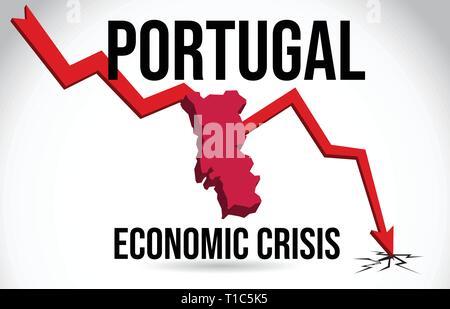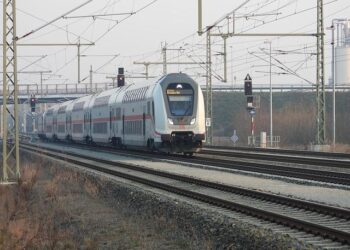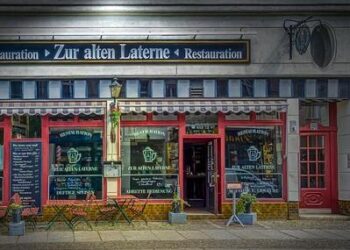Portugal is facing a mounting economic challenge as tourists begin to steer clear of its traditionally popular destinations, citing rising costs that rival those of the Caribbean. This unexpected shift threatens to undermine the country’s vital tourism sector, which has long been a cornerstone of its economy. With visitors labeling the once-affordable Portuguese hotspots as prohibitively expensive, industry experts and local businesses are now grappling with the potential fallout from declining arrivals and reduced tourist spending.
Tourism Decline Hits Portugal as Rising Costs Drive Visitors Away
Portugal’s tourism sector is facing a significant downturn as travelers increasingly balk at the soaring expenses associated with what was once considered an affordable European destination. The surge in accommodation prices, dining costs, and general day-to-day expenses has pushed Portugal’s popular hotspots into pricing territory traditionally reserved for luxury Caribbean vacations. Industry insiders reveal that visitors, particularly from the UK and other European countries, have started rerouting their holidays to alternative destinations offering better value for money.
Local businesses and tourism officials are raising alarms about an emerging trend potentially threatening the sector’s recovery after pandemic setbacks. Key factors influencing this shift include:
- A steep rise in rental costs for both short-term stays and local housing
- Inflation-driven price hikes in restaurants and transport services
- Decreased availability of budget-friendly options due to increased demand and speculative pricing
| Expense Category | 2022 Average Cost | 2024 Average Cost | Percentage Increase |
|---|---|---|---|
| Hotel Night (Mid-range) | €95 | €140 | 47% |
| Meal at Restaurant | €18 | €25 | 39% |
| Local Transport | €2.50 | €3.50 | 40% |
Economic Impact on Local Businesses Amid Falling Tourist Numbers
Local businesses across Portugal are feeling the sharp sting of declining tourism as visitors abandon what was once a thriving hotspot now deemed nearly as costly as Caribbean destinations. Small hotels, restaurants, and souvenir shops report a noticeable drop in footfall, leading to reduced revenues and, in some cases, temporary closures. The fallout is particularly severe in coastal towns that heavily rely on summer bookings, with many proprietors desperately seeking new strategies to attract a more budget-conscious clientele. As tourists turn away due to rising costs, the ripple effect threatens to disrupt the entire service sector.
Economic data highlights the shift, with average daily tourist spending falling by nearly 15% compared to the previous year. Areas hit hardest show not only fewer visitors but also a contraction in business hours and staffing levels. Here’s a snapshot of the current business climate in key Portuguese tourism zones:
| Location | Revenue Decline (%) | Business Closures | Average Occupancy Rate (%) |
|---|---|---|---|
| Algarve Coast | 22 | 12 | 58 |
| Lisbon City | 14 | 7 | 65 |
| Madeira Island | 18 | 9 | 54 |
To stay afloat, many businesses are diversifying their offerings, focusing on local customers, and promoting off-season deals to counterbalance the downturn. However, the growing perception of Portugal as an overpriced destination compared to other European options remains a significant barrier, risking long-term damage to an economy deeply intertwined with global travel patterns.
Strategies to Revive Portugal’s Appeal and Competitive Pricing in Global Market
To counteract the alarming drop in tourist numbers, Portuguese authorities and businesses must recalibrate their approach to pricing and value perception. Implementing dynamic pricing strategies that better reflect seasonal demand could attract budget-conscious travelers without sacrificing revenue during peak times. Additionally, enhancing the quality-to-price ratio through bundled offers that include accommodations, dining, and local experiences can create a more compelling proposition. Targeted marketing campaigns emphasizing Portugal’s unique cultural heritage, stunning landscapes, and authentic culinary experiences over price alone will help differentiate the country from other expensive destinations such as the Caribbean.
Another vital step involves investing in infrastructure and sustainable tourism initiatives that improve the traveler experience while reducing operational costs. Collaboration between the public and private sectors can facilitate innovation, such as digital platforms for real-time price comparisons and flexible booking options. The table below outlines potential strategies and their anticipated benefits:
| Strategy | Benefit |
|---|---|
| Dynamic Seasonal Pricing | Attracts off-peak tourists |
| Bundled Experience Packages | Enhances perceived value |
| Focused Cultural Marketing | Improves destination differentiation |
| Public-Private Collaboration | Encourages innovation & cost reduction |
Insights and Conclusions
As Portugal grapples with a sudden downturn in tourism, industry experts and local businesses are urged to reassess pricing strategies to remain competitive in an increasingly cost-conscious market. With travelers turning away from the once-popular destination in favor of more affordable alternatives, the country faces both economic challenges and an opportunity to redefine its appeal. How Portugal responds to this crisis will be crucial in shaping the future of its tourism sector and preserving its standing on the global travel stage.
















